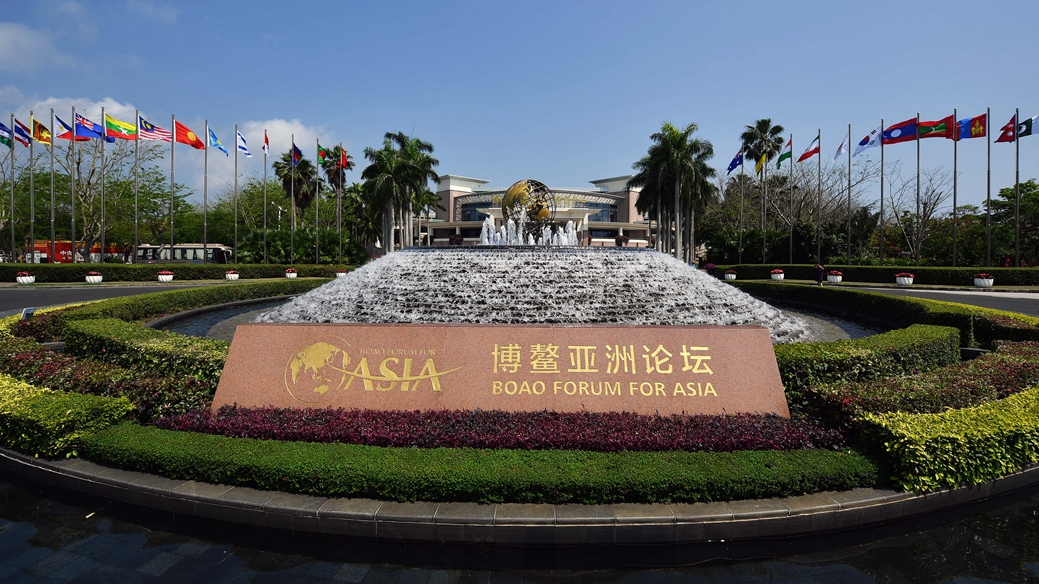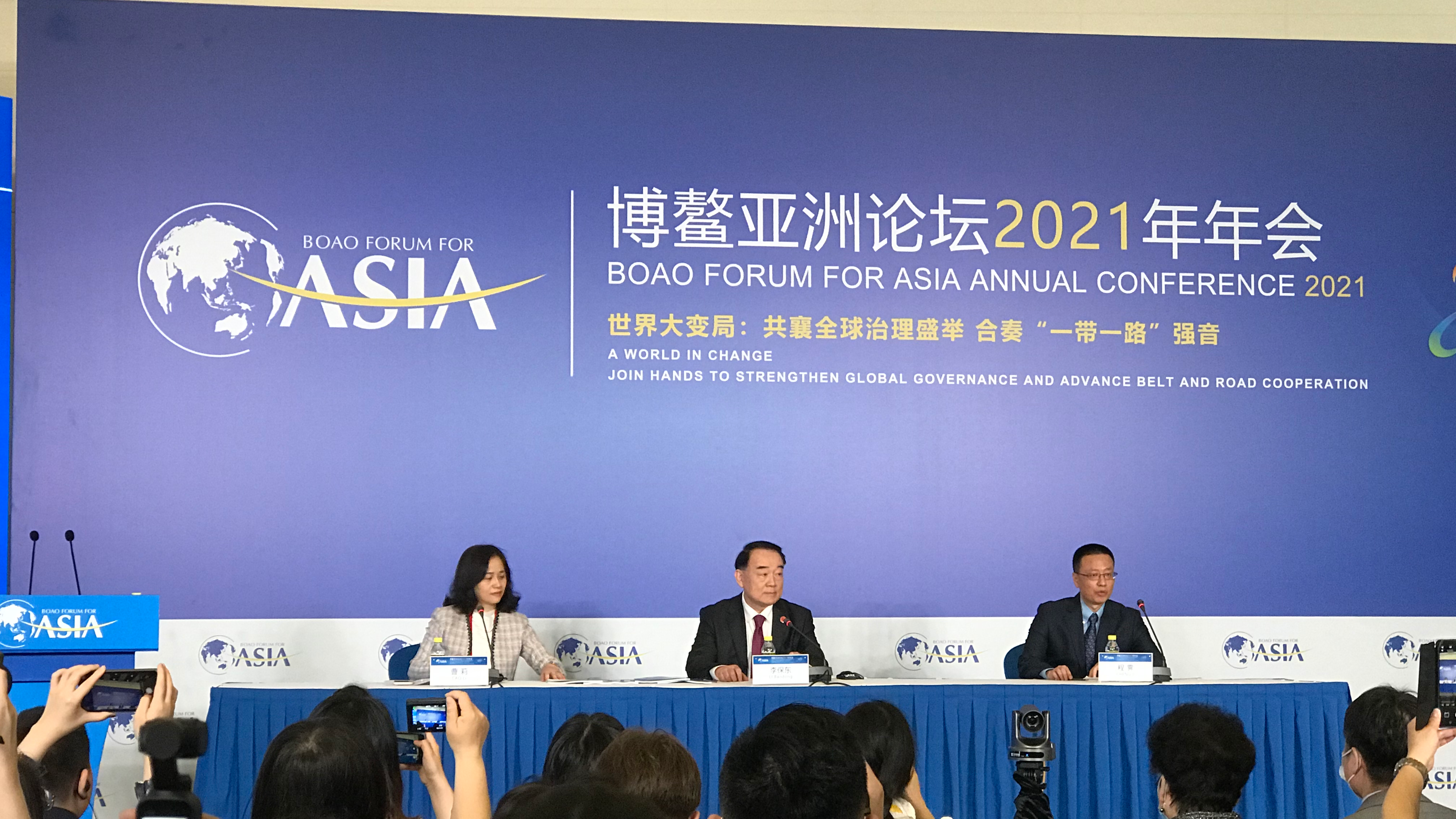
The venue for the Boao Forum for Asia (BFA), in Boao, Hainan Province, south China. /Xinhua
The venue for the Boao Forum for Asia (BFA), in Boao, Hainan Province, south China. /Xinhua
Editor's note: Rabi Sankar Bosu is an Indian contributor to Chinese media outlets. He writes about Chinese politics, social and cultural issues, and China-India relations with a special interest in the Belt and Road Initiative. The article reflects the author's opinions, and not necessarily those of CGTN.
Running from April 18 to 21 under the theme "A World in Change: Join Hands to Strengthen Global Governance and Advance Belt and Road Cooperation," this year's Boao Forum for Asia (BFA) Annual Conference, the first major diplomatic event in China this year, concluded in Boao, a coastal town in south China's Hainan Province. Hainan is China's largest special economic zone and front line of China's reform and opening-up policy, offering China's fresh ideas on globalization, multilateralism, free trade, climate change and global governance at a time of global uncertainty.
The four-day annual conference, which has been dubbed the "Asian version of the World Economic Forum," has once again become the focus of the world's attention since the COVID-19 pandemic has been continuing to crumble the world economy.
Furthermore, this year's forum under the aegis of China took place at a time when the growing waves of protectionism, unilateralism and anti-globalization have been dampening the spirit of globalization due to the United States' national selfishness.
As such, all eyes with optimism were fixed on the inaugural address of Chinese President Xi Jinping at the Boao Forum on April 20, in which he presented "Chinese solutions" for Asian economic cooperation and trade partnership within Asia and between Asia and other parts of the world, amid the current U.S. trade protectionism.
Xi's speech can be seen as a bulwark against the unilateralism and protectionism caused by successive U.S. leaderships. "We must not let the rules set by one or a few countries be imposed on others, or allow unilateralism pursued by certain countries to set the pace for the whole world," Xi emphasized.

Boao Forum for Asia annual conference 2021 opens in Boao, south China's Hainan Province, April 18, 2021. /CGTN
Boao Forum for Asia annual conference 2021 opens in Boao, south China's Hainan Province, April 18, 2021. /CGTN
In his fifth appearance at the Boao Forum (albeit virtually), in a fitting reply to the U.S. administration's trade hostilities, Xi charted the right course for economic globalization. While hinting at the populist movements that have spread across Western nations in the last few years, Xi said the world needs to "promote trade and investment liberalization and facilitation, deepen regional economic integration, and enhance supply, industrial, data and human resources chains."
Xi's emphasis on "a more fair and equitable global governance system" is very timely since protectionist and unilateral political approaches tend to disrupt the existing regional and international order and create conflicts among nations.
Since the whole world has been under the cobweb of the deadly virus, President Xi called for the need for coordinated global efforts to bring COVID-19 under control while opposing the politicization of vaccines or "vaccine nationalism" by many countries. He offered an optimistic message of China's commitment to multilateral vaccine alliance COVAX to overcome the health crisis caused by the ongoing pandemic.
China's vaccine donation program under the Health Silk Road Initiative has already covered about 60 countries around the world. And its sharing of COVID-19 vaccines with the rest of the world, especially the developing countries, has won high appreciation from the United Nations and the international community. As former Philippine President Gloria Macapagal Arroyo hailed: "We appreciate that China considers its vaccine against the coronavirus a global public good."
It's really unfortunate that some major economy governments, in particular, the U.S., the UK and European Union, are hoarding vaccines, which has resulted in the global shortfalls of life-saving vaccines. It is a farce that the U.S. government under President Joe Biden wants to protect human rights in other countries but does not want to donate vaccines to save their lives.
Besides, China's positive role in global governance is reflected in its efforts to promote world economic development and climate change. When the U.S. and its Western allies, including India, dubbed the Belt and Road Initiative (BRI) as "debt imperialism," President Xi used the Boao Forum speech to outline the openness of the BRI's "Good Samaritan" contributions that have benefited the rest of the world.
It's really encouraging to hear that Xi revealed that by 2030, the BRI projects could help lift 7.6 million people from extreme poverty and 32 million people from moderate poverty across the world.
Undoubtedly, Xi's Boao speech sends a powerful signal that China will continue to play an active and responsible role in shaping the global order by tearing down the "bamboo curtain" erected by the West and promote a world of greater prosperity in the days to come.
(If you want to contribute and have specific expertise, please contact us at opinions@cgtn.com.)

